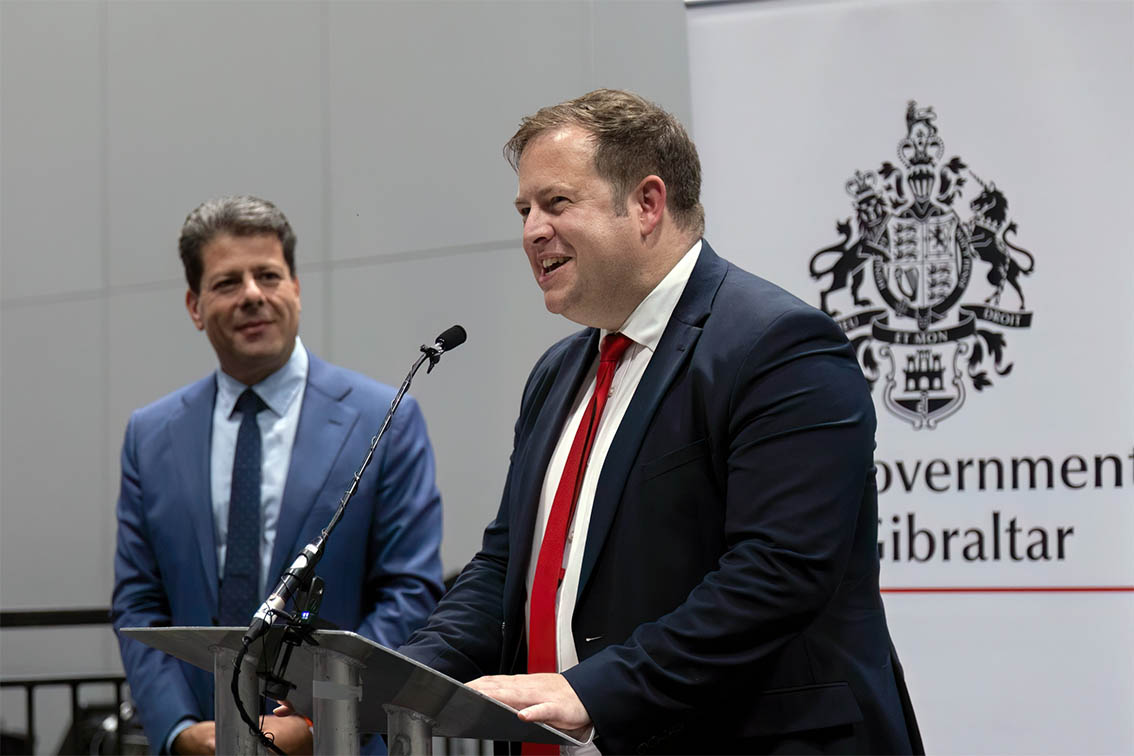Foreign Minister Constantinos Kombos on Wednesday held a telephone conversation with the United Kingdom’s Minister of State for Europe Stephen Doughty to discuss ongoing developments in the region, a day after Iran and Israel agreed to a hastily-prepared ceasefire.
The call was their second in the space of less than a week, with the pair previously having spoken on Friday.
In addition to what it described as the “evolving situation in the region”, the foreign ministry said the pair discussed bilateral relations, as well as the latest developments on the Cyprus problem.
The call comes as the UK bolsters its military presence in Cyprus in reaction to the conflict, with the country’s parliamentary under-secretary of state for the armed forces Luke Pollard having said earlier in the week that there are “about 14” British Typhoon fighter jets currently stationed at the Royal Air Force’s base in Akrotiri.
He told the UK’s parliament that in addition to those already stationed on the island, the country’s Prime Minister Sir Keir Starmer “has made it very clear that should further resources be required, we will not hesitate to roll them forward”.
Additionally, he confirmed that the UK was not involved in bombing raids carried out by the United States on Iranian nuclear facilities over the weekend, echoing the words of the country’s Business Secretary John Reynolds on Sunday.
“The United Kingdom did not participate in them, and the UK and the US have a shared ambition that a nuclear bomb should not be held by the Iranian regime,” Pollard said.
Meanwhile, the RAF had this week evacuated 63 British nationals and their dependents from Israel to Cyprus, with the BBC reporting that those on board have since made onward journeys to the UK.
The UK’s chief rabbi Sir Ephraim Mirvis was reportedly on board the flight to Cyprus.
Last week, it had been reported that the US may ask the UK for permission to station aircraft in Cyprus for future attacks on Iran, with those reports coming after Iran had warned the US, the UK, and France that their bases and ships in the region will be targeted if they help to stop its missile strikes on Israel.
Later, Iran’s ambassador in Nicosia Alireza Salarian said his country had “already raised this concern to the relevant authority” and added that “if we see any aggression from the third country, we have the right to response”.
The UK’s Defence Secretary John Healey had meanwhile said following the first deployment of British aircraft to the region that the country has “always supported Israel’s right to security”, and that it has “grave concerns about Iran’s nuclear programme”.
He later added that “a diplomatic resolution rather than military action is the only route to lasting stability”.
Earlier, the UK’s Foreign Secretary David Lammy had said the country’s bases in Cyprus are “hugely important at this time”.
“The government would be irresponsible if we did not account for all possibilities at this time,” he added.
He then went on to say that “this is a very tense time if you are in Jordan, the United Arab Emirates, Saudi Arabia, Bahrain, or Cyprus”.
Meanwhile, when asked if the UK would come to Israel’s aid if asked to do so, Chancellor of the Exchequer Rachel Reeves said that “we have, in the past, supported Israel when there have been missiles coming in.
“We’re sending in assets to both protect ourselves and also potentially to support our allies”.
Last year, Cyprus was the likely launchpad for the military support offered by the United Kingdom to defend Israel from a volley of Iranian missiles launched at the start of October.
The British defence ministry had at the time announced that two RAF Typhoon fighter jets and one Voyager air-to-air refuelling tanker “played their part in attempts to prevent further escalation in the Middle East”.
This, they said, demonstrated “the UK’s unwavering commitment to Israel’s security”.






Click here to change your cookie preferences